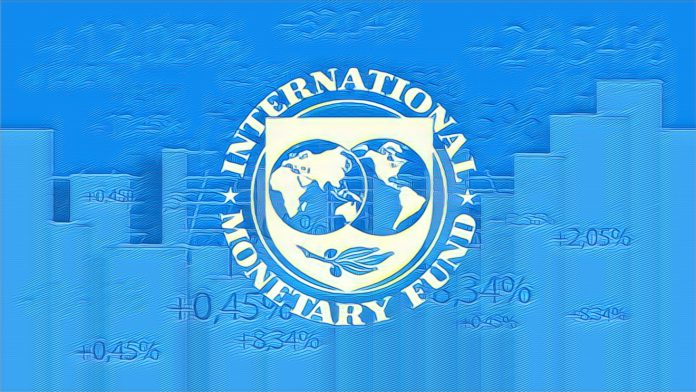Nigeria’s currency, the naira, is under pressure and the country could seek a loan from the International Monetary Fund (IMF) to stabilize it, the Washington-based lender said on Monday. The IMF also praised the recent exchange reforms and other steps taken by the Nigerian authorities, such as lifting the foreign exchange ban on 43 items that had been imposed in 2015.
The naira has plunged to 1045 per dollar on the parallel market, from about 450 per dollar before the exchange reforms of President Bola Tinubu in June. The reforms unified the different official exchange rate windows and aimed to strengthen the foreign exchange market.
The IMF said Nigeria was facing high inflation of 26 percent year-on-year in August and urged the authorities to tighten monetary policy and take measures to ensure market confidence in the Central Bank of Nigeria (CBN). “Tightening monetary policy will have to include raising the Monetary Policy Rate and mopping up excess naira liquidity. Market confidence will benefit from more clarity on Central Bank of Nigeria dollar obligations,” the IMF said in a response to emailed questions by The PUNCH.
A JP Morgan report put the CBN’s forward contract obligations at $6.8 billion, but some stakeholders said the amount could be higher. The IMF said Nigeria could seek its financing if it needed to address external imbalances, but added that the Nigerian authorities had not approached it with a request for a loan.
“As every member country of the IMF, Nigeria can seek IMF financing if they see this as helpful to address external imbalances. The Nigerian authorities have not approached the IMF with a request for financing,” it said. The IMF also expressed confidence in the new CBN governor, Olayemi Cardoso, and the new finance minister, Wale Edun, who have outlined plans to stabilize the economy and support Tinubu’s economic agenda.
Cardoso said he would review foreign exchange market policies, monetary policies and CBN’s corporate governance practices. He also said he would limit CBN’s fiscal interventions and address inflation and price stability issues. Edun said he would implement fiscal reforms to collect more tax revenue and reduce waivers. He also said he would pursue growth targets that would achieve $1 trillion GDP within eight years.
The IMF has provided financial support and debt relief to some African countries to help them cope with the economic shocks caused by the pandemic, Russia’s invasion of Ukraine and rising U.S. interest rates.
It has also called for more international cooperation and solidarity to help Africa overcome its challenges. It has urged rich countries to provide more aid, debt relief and vaccine donations to the continent. The IMF’s managing director Kristalina Georgieva said last week that Africa had a bright future ahead if it could overcome its current difficulties. “Africa is a continent of incredible dynamism, resilience and potential,” she said. “Together, we can help unlock that potential and build a more prosperous and inclusive future for all Africans.”
Source: The Punch



